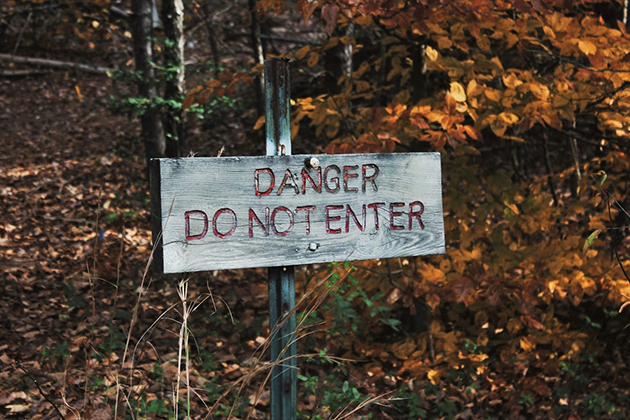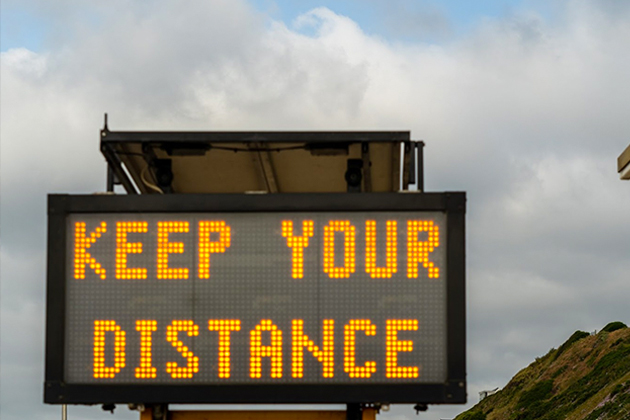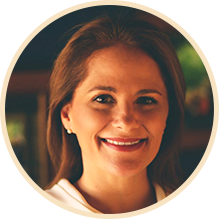Chapter 08
7 Signs You’re In A Toxic Relationship With A Client
Featured Articles
What Is A Toxic Relationship?

Dr. Lillian Glass, a California-based communication and psychology expert who says she coined the term in her 1995 book “Toxic People“, defines a toxic relationship as “any relationship [between people who] don’t support each other, where there’s conflict and one seeks to undermine the other, where there’s competition, where there’s disrespect and a lack of cohesiveness.”
Wendy Behary, the Founder and Director of The Cognitive Therapy Center of New Jersey and The Schema Therapy Institutes of NJ-NYC and DC, says “Any toxic relationship implies there is something potentially damaging for the person (or both people) in that relationship.”
Toxic relationships can leave you doubting your confidence, your values, and your sense of self-worth.
These relationships have a wide range of elements that range from feeling uncomfortable and drained of energy, to feeling physically and emotionally endangered. Their nature can be romantic, familiar, professional or social.
In this article, we are going to focus on understanding the nature of toxic relationships from a coach-client perspective. How and why they get created, how we can know if we are in a toxic relationship with our clients, and what we can do about it.
How Do Coaching Relationships Turn Toxic?

Let’s begin by understanding that there is no such thing as a “perfect” relationship in our personal or professional life. But for the most part, we aim to build healthy relationships with other people that make us feel safe, respected, content, and supported.
Sometimes though, we may find ourselves feeling really uncomfortable with the very people that we are trying to help. We may sense that our client makes a shift from being open and willing, to being disrespectful and draining.
Know that this happens not because your client willingly tries to hurt you, or because anybody wants to have a less-than-optimal relationship. But because our life experiences shape the way we show up in the world (in a good or a bad way).
Hurt people will tend to hurt other people. When we don’t know how to heal our past, or work on ourselves, we tend to negatively project our “shadows” onto others.
7 Warning Signs Of A Toxic Relationship

There are many warning signs that will show up for you if you are in a toxic relationship. From feeling drained of energy, to feeling disrespected.
The key word here is how it makes you feel. Our emotions are the way that our mind and heart let us know on a physical level, that there is something that we have to pay attention to.
When you feel good about something, it’s because you are going on the right track towards what you want to create for your life.
And when you are constantly feeling bad, uncomfortable, drained, stressed out, it is time you pay closer attention to what is going on around you. Because this means that you are definitely not living in alignment with what you want.
Here are the 7 common warning signs you should look out for.
You Feel Drained Of Energy
You feel like you have to invest too much into your relationship and are not getting anything in return. You constantly feel you have to sacrifice your personal needs to meet your client’s.
You may have to run after your client for them to come to your sessions, pay your fees or follow up on their word. You may also find yourself avoiding interactions with your client.
Your negative emotions get detonated around the other person. From feeling anxious to feeling angry, negative emotions are an indicator that there is something wrong with your current relationship.
You Don’t Trust Your Client
You feel like you have to be careful about what you say and how you say it, so it won’t be used against you. You have a feeling of constantly having to “watch your back”.
There is a lack of openness in your communication. And you feel like your client is always hiding something. You feel uncomfortable around the other person. If there is no trust, there is no way to develop a relationship, especially because two of the most important factors of a coaching relationship (after trust) are rapport and empathy.
There Are No Clear Boundaries
When you have no clear boundaries, you may find your client wanting to take more than what they are willing to invest in themselves. They may be calling you at all times, demanding more attention from you, pushing for you to “fix them”.
You may feel like your client is taking advantage of you, showing up late to your sessions and pushing your calendar to fit their own needs. You will also find that there are many expectations that are set upon you that you didn’t agree to.
You Can’t Communicate Effectively
You can’t seem to communicate in the same “language” as your client. You feel like communicating with your client requires a huge effort on your part, and the message that you are trying to deliver is never understood the way you meant.
You may find it nearly impossible to work through disagreements, manage conflict or provide feedback.
You Feel Judged All The Time
You may start to doubt your capabilities as your client questions everything you do. You may feel your self-confidence going down the drain as you feel constantly judged.
Your client never seems satisfied with your work, they may ask for more than what was agreed in the coaching agreement so you can “make up” for the value that you didn’t deliver. And you may often feel like your work has diminished value.
Your Client Is Unreliable
You may find that you can never trust what your client says they’ll do. Your client may be often late to your sessions. They may not do the work they promised to.
This client will bring up tons of excuses to justify himself, and you will see little to no progress at all in his journey.
Your Client Is Stuck In A Negative Loop All The Time
You feel like most of the time you have to focus on getting your client to consider something positive.
It is difficult for your client to see any possibility beyond his pain, and he is not willing to work on that. He comes from a victim mindset where the world “happens to him”. No matter how much you’ve tried to help him, he feels like he is doomed for a life of pain and suffering.
Never ending drama drains you both, and you may even start to doubt your calling as a coach.
What To Do If You’re In A Toxic Relationship

First things first. If there is any indication of violence, harassment or anything that puts your life or integrity in danger, you should terminate the relationship immediately.
Now that we got that out of the way, here is a 3-step formula you can try before you make a decision whether or not to continue the professional relationship:
Focus On What You Do Want In Your Coaching Relationship
Now that you have a better understanding of the elements that you don’t want to have in a coaching relationship, it’s time to think about the things that you do want. Remember that what we focus on, expands!
What does an ideal coaching relationship look like for you?
What are the values that rule the way you and your client show up for each other?
What are the important boundaries that you want to have in place?
What are the results that you are creating together?
How do you feel after your sessions?
Set Clear Boundaries And Communicate Them
When you have clarity around what you want, then create a coaching agreement with your client, and communicate your boundaries clearly.
What will your coaching relationship look like?
What is the commitment required from yourself and your client?
How are you going to communicate in between sessions? (Can they call you? WhatsApp you? At what times?)
What is your policy around time? (What happens if they are late or cancel a session at the last minute?)
What is your payment policy?
Co-Create A Plan Of Action
Remember that all relationships involve 2 or more people, so in order to create a healthy relationship, you can’t build it by yourself.
Invite your client into the conversation. After all, your coaching relationship is about your client’s hopes and dreams.
What would they love to create for themselves?
How do they envision their life in the next 10 years?
What do they need to make it happen? (actions, mindset shift, self-accountability)
What help are they expecting from you?
What can you realistically support them with?
How will they keep themselves accountable?
Try this 3-step formula with your clients, I can assure you it will change the nature of your relationships for the better!
But if you implement these 3 steps consciously and you feel like your coaching relationship is still toxic, it’s time to make a decision.
Remember this: If a coaching relationship fails, it’s not your fault. Don’t take it personally. Not all relationships are meant to be.
If you need to let go of a client, then please do it. Your heart will always tell you when it’s time. Believe me, you will be doing yourself and your client a great service, because we all deserve a life full of joy!

Francesca Facio
This article was written by:
Francesca Facio is a Human Optimization coach, international speaker, and trainer in life design. She is also the Learning Experience Designer, and one of the head coaches for Certified Business Coach by Evercoach. With a postgraduate degree in Happiness and Organizational wellbeing, and certification in Pranic Healing, she combines the Western practices of coaching with the Eastern practices of healing to help her clients find their life purpose, ignite their passion and take the steps towards their personal freedom.
